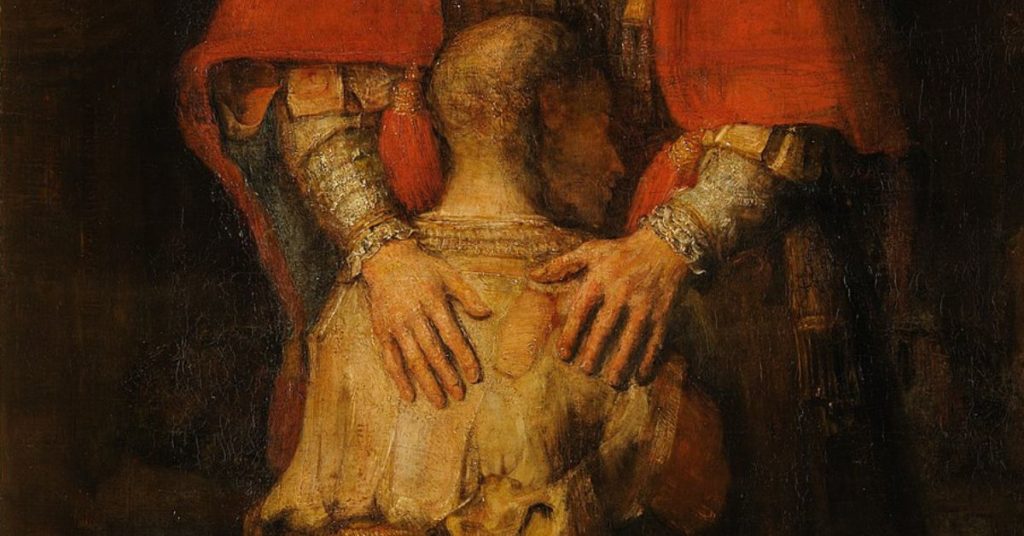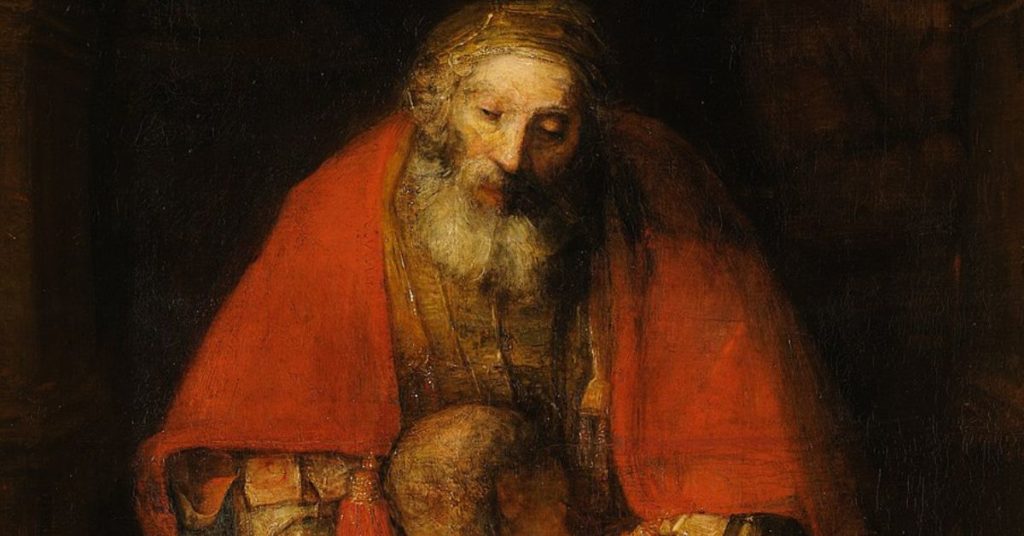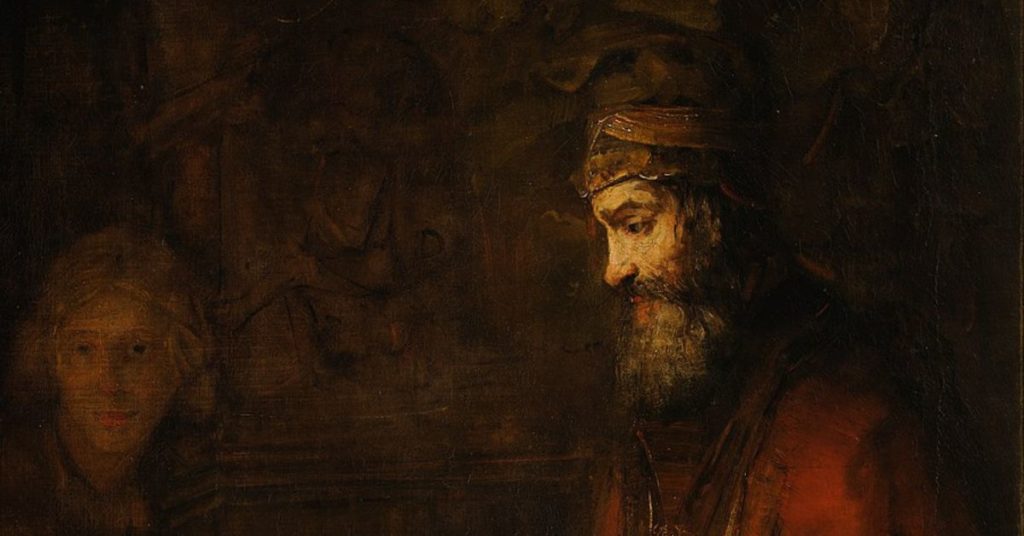Rev Zheng Biqing written in 3 July 2022
This parable is commonly known as the Prodigal Son. Traditionally the emphasis of exegesis is placed on the repentance of the prodigal son and the reconciliation to the father. Such interpretation raises two questions: How do we explain the absence of Jesus the Saviour, as well as the weak relation of the complaint of the elder son to the call to repentance? The Lord Jesus could have ended the parable at verse 24. Yet he did not. So, he must have more to say to the original audience and present readers of the Gospel account.
In this article, we will look at this parable from a slightly different perspective. First, let us understand the context in which this parable was told, which is in verses 1 and 2.
“Now the tax collectors and sinners were all gathering around to hear Jesus. But the Pharisees and the teachers of the law muttered, “This man welcomes sinners and eats with them.”
Luke 15:1-2
To the Jewish religious leaders, the way to eternal life is to keep the Mosaic Law which comprises of three subgroups: the ceremonial law, the moral law, and the civil law. Any Jew who does not comply with these laws is a sinner in their eyes. For example, the tax collectors are sinners because they work for the Roman authorities in exploiting the Jews thereby violating the civil law. The poor and the marginal are also sinners because they fail to offer sacrifices according to the festivals in the ceremonial law. Association with sinners are, therefore, considered decadent and unacceptable. That was why the religious leaders were greatly disturbed and angry when they saw Jesus “welcome sinners and eat with them”.
Their view of God’s character was obviously distorted. They see God as the divine Judge that condemns sinners and approves righteous men, and they believe that the way to obtain God’s approval is to abide by the law in letter. They are expert in the law yet they do not know God. Their insistence on the idea of God causes them to reject Jesus who is the exact representation of God’s being. Heb 1:3
“The god of this age has blinded the minds of unbelievers, so that they cannot see the light of the gospel that displays the glory of Christ, who is the image of God.”
2 Corinthians 4:4
Sin has corrupted not only the image of God that man carries, but also man’s vision of God. Not only non-believers do not know God, even believers have distorted view of God. One extreme distortion is to overemphasize the sternness of God and see God as the Egyptian slave drivers with a whip in their hands all the time. The other extreme distortion is to overemphasize on the benevolence of God and have no fear for God. God forewarned us of the severity of not knowing God through the prophet Hosea, “My people are destroyed from lack of knowledge.” Hosea 4:6
To correct the wrong perception brought about by the religious leaders, Jesus told three parables to illustrate God’s heart towards sinners. Of the three the Prodigal Son is the most elaborated.
The Prodigal Son

The younger son fell to a place that is abominable in the eyes of the Jews. Not only was he living among the gentiles, he also came into contact with pigs which is an ultimate symbol of loathing for the Jews, and was even denied the pods of the pigs!
In his despair he came to his senses. He realized his sins against his father and God. And he remembered he has a father. Four times in his soul-searching he mentioned ‘my father’ (v. 17,18,21) : “How many of my father’s hired servants have food to spare…I will set out and go back to my father…” The memory of his father aroused the his knowledge of who his father is, that his father is of a noble character, full of mercy, and are forbearing towards his foolishness. From the knowledge of the father comes the love for his father, and from the love for his father comes the desire to return to his father. He saw himself unworthy of the father and was prepared to be forfeited of his sonship and serve the father as a worker. He got up and went home. His action is based on his knowledge of the father. He prepared to beg for pardon, but he was met with the father’s embrace and kisses. He prepared to live in the workers’ dormitory, but he was given the full recognition of a son, plus a welcome-home party! The grace of his father far exceeded his expectation and imagination!
Dear brothers and sisters, such is the grace we received in Christ! When we are convicted by the Gospel, we only asked for pardon from our Creator and freedom from the guilt of our transgressions. Yet God adopted us into the divine household as sons of God!
The Waiting Father

“But while he was still a long way off, his father saw him and was filled with compassion for him; he ran to his son, threw his arms around him and kissed him.”
Luke 15:20b
Seeing his sons walking towards home from a distance, the father was filled with compassion. He embraced the son lovingly before the son said anything. This is the most encouraging character of parental love. When the father heard the son’s confession, he rejoiced and called for a huge family celebration –the fatten calf that was reserved for the greatest family feast was slaughtered! It is a celebrative joy, a joy to be shared with everyone in the household.
Most of us would not have done that. The first thing we would do is probably to give the son a lecture. We would want him to prove himself worthy of our trust before embracing him. We would let him work as a hired man for a period of time before restoring his sonship.
To understand the father’s response, we need to know the father’s character. In the heart of the father, the son was formally dead. But the repentant heart has made him come alive! “For this son of mine was dead and is alive again; he was lost and is found.” – vv.24,32
Such is the heart of God towards sinners. “there is joy before the angels of God over one sinner who repents.” (v.7,10,23) This is the commonality shared by all the three parables that Jesus told – the parable of the lost sheep, the parable of the lost coin and the parable of the lost son. God’s heart for us is a father’s longing heart for a fallen son, not an avenging heart for an enemy nor the punishing heart of a judge for a convicted villain. Thank God that the present age – the age between the ascension of Jesus and the next advent of Christ, the period of “Already but not yet” – is the time of favour and the day of salvation (Isa 49:8; 2Cor 6:2) It is what the prophet Zephaniah proclaimed in gladness,
“The LORD your God is with you, the Mighty Warrior who saves. He will take great delight in you; in his love he will no longer rebuke you, but will rejoice over you with singing”
Zephaniah 3:17
The Second Prodigal Son

“The older brother became angry and refused to go in. So his father went out and pleaded with him.”
Luke 15:28
This is the ultimate point of this parable. It alludes to the hatred of Jewish leaders towards Jesus.
This is the tragic part of the parable. Even though he has lived in the father’s house and has not done a wrong thing, yet the older son does not know his father! “you are always with me, and everything I have is yours.” v.31 All these years he was at the side of the father but he has not enjoyed the father’s companion nor the prestigious sonship! This is exposed in his sentiment in the conversation with the father.
Notice that he did not address his father ‘father’ in this conversation, and he called his brother ‘this son of yours’ (and that implies ‘not my brother’)! He did not see himself as his father’s son. “Look! All these years I’ve been slaving for you and never disobeyed your orders.” v.29 He saw his value in what he does instead of who he is! He saw himself as a slave instead of a beloved son! This ‘good’ son is in fact another prodigal son.
Dear brothers and sisters, “So you are no longer a slave, but a son,” – Gal 4:6 Let us not forget that priceless sonship we received in Christ. It is purchased by the precious blood of the Son of God. What is the chief end of a man? Man’s chief end is to glorify God, and to enjoy Him forever. Our sins are forgiven, we are given the sonship of adoption, and we are elevated to a temple of God through the indwelling of the Holy Spirit. If we do not enjoy God we are just as pathetic and tragic as the older son in this parable!
This is the problem of the Jewish leaders. They thought they had to earn God’s favour with good religious performance. They thought they could glorify God by merely doing the law even though God has repeatedly revealed that He does not take pleasures in burnt offerings. Instead, “a broken and contrite heart, you, God, will not despise.” (Ps 51:17) “Blessed are the poor in spirit, for theirs is the kingdom of heaven.” (Mat 5:3) From a contrite heart comes the love for God. If we love God, we will go after God’s heart, and will enjoy the sweetness and joy of doing God’s will. Conversely, if we do the law for the sake of doing it or out of self-righteousness, we do not enjoy God nor glorify Him.
The father is forbearing towards both sons because they are his sons. It is not outward obedience that God seeks in us. It is a truly repentant soul that loves God with all the heart and all the mind and all the might.
So let us reflect constantly on ourselves. Did we try to impress God with outward performance? Did we justify our negligence in daily devotion, in caring for His church and in proclaiming the Gospel with the excuse of ministry serving?
“Yet you never gave me even a young goat so I could celebrate with my friends.” V. 29 A hired man expects wages. Seeing the fatten calf given to the ‘undeserving’ son, he flew into a rage! His heart was shouting out, “not fair”, as if his father was indebted to him.
Do you find this sentiment in your heart too? I have served in the church for so many years, why am I not invited to serve on stage? I am more knowledgeable in theology than many others, why am I not appointed as an elder? God, I made so much sacrifice for you, and yet you never gave me …. God is not fair!
The fundamental cause of this sentiment is not knowing God. In life what we need is not ‘fairness’. As a matter of fact, if God is fair and treats us according to what we deserve, all of us would have perished long ago! God is not indebted to us but we are forever indebted to God! It is not fairness that we need. It is mercy that we need!
Let us thank God for filling our life with mercies upon mercies, just as the father is merciful towards the two sons. Let us continue to know God better, love Him dearly and enjoy Him evermore!


0 Comments